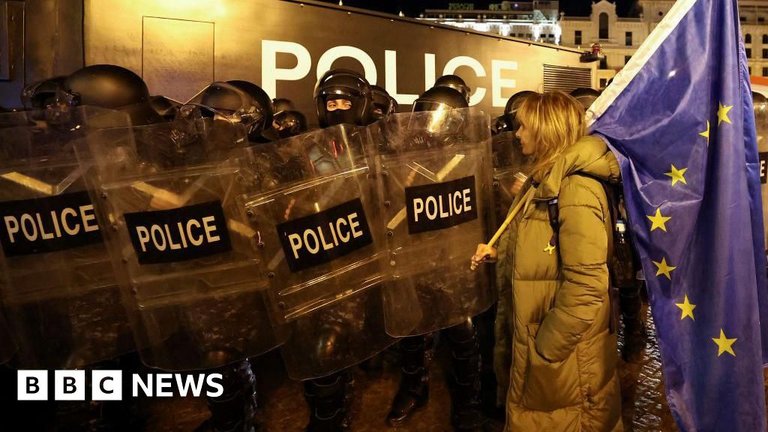Violent clashes after Georgia shelves EU bid

The decision prompted widespread demonstrations in Georgia, with thousands assembling outside the parliament building in Tbilisi.

The decision prompted widespread demonstrations in Georgia, with thousands assembling outside the parliament building in Tbilisi.
1/ Riot police clashed with protesters in Tbilisi after Georgia's government paused its EU membership bid until 2028. Tear gas, batons, and water cannons were used to disperse demonstrators.